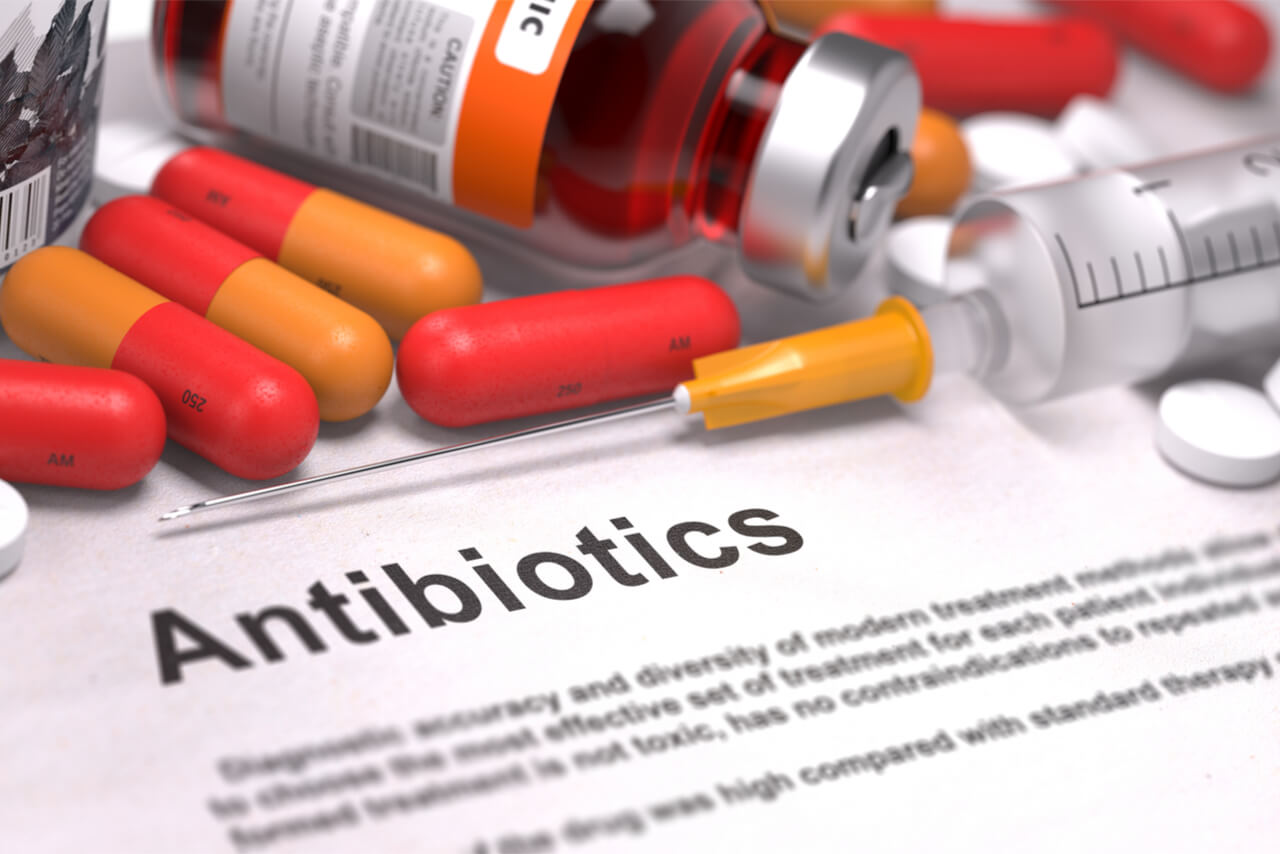According to the World Health Organization, antibiotic resistance is one of the largest global health threats. Antibiotic resistance is increasingly rising in all parts of the world and poses a risk to both humans and animals. The result of antibiotic resistance includes higher medical costs, prolonged hospital stays, and increased mortality.1 The Centers for Disease Control and Prevention (CDC) states, “Antibiotic/Antimicrobial resistance is the ability of microbes to resist the effects of drugs – that is, the germs are not killed, and their growth is not stopped.”2 In other words, over time microbes can grow resilient to antibiotics. What is more frightening; antibiotic resistance can spread, regardless of your use of antibiotics.
Used to treat bacterial infections, antibiotics are responsible for both minor illnesses and saving lives. The first antibiotic, penicillin, was discovered in 1928.3 Now, numerous antibiotics are relied on every day to treat anything from urinary tract infections to fatal sepsis. Antibiotics work in different ways to combat bacteria. They can block the process of bacteria building cell walls, block bacteria from building proteins, and break DNA strands.4 Every year in the United States more than 266 million prescriptions for antibiotics are written. The CDC states that studies show approximately 30% of these antibiotics are not needed. Even more, 50% of antibiotics prescribed for acute respiratory infections are not needed, and 50% of patients are not prescribed the recommended antibiotic for their ailment.2 Antibiotic resistance starts when a large number of bacteria are present, and only a few are drug resistant. Antibiotics kill both the harmful and beneficial bacteria, which destroys the infectious bacteria but also places the body at risk by destroying protective bacteria. When the drug-resistant bacteria are left behind, they can multiply and can negatively impact other bacteria, causing more drug resistance.5
Antibiotic resistance isn’t just a nerve-racking theory, but a reality. It is estimated that at least 2,049,442 illness and 23,000 deaths have occurred from antibiotic illness in the United States alone.2 Lauri Hicks, Director of the Office of Antibiotic Stewardship from the CDC states, “It’s imperative that patients receive the right dose of the right antibiotic, for the right amount of time and only when necessary. When antibiotics are inappropriately prescribed and used, we jeopardize the health of patients and we jeopardize the effectiveness of the antibiotics available to fight serious infections.”3 Antibiotic resistance doesn’t just impact the individual taking antibiotics, but can spread in multiple ways. Antibiotic resistance can first begin in the gut of either a human or an animal. In animals, the drug-resistant bacteria can transfer on the meat from animals and potentially spread to humans if not prepared with caution. In addition, fertilizer or water that has fecal matter can be transferred to crops and then consumed by humans. Humans can also spread resistant bacteria through healthcare facilities such as hospitals on surfaces or by direct contact.4
Thankfully, you can do your best to prevent the spread of resistance by first avoiding infections and then carefully discussing treatment options with your doctor. Keeping a strong immune system is vital to the prevention of communicable diseases and infections. The CDC recommends keeping up to date on immunizations, safely preparing food, washing hands thoroughly, using antibiotics correctly and only using them when it is necessary.5 You can boost your immune system by eating a diet high in whole foods with a focus on fruits and vegetables.When possible, purchase antibiotic-free meat as well. Certain herbs and supplements are used to support immune health such as astragalus, probiotics, and vitamin C. As always, discuss proper treatment and concerns with your primary care physician.
Sources:
- Antibiotic resistance. World Health Organization. http://www.who.int/mediacentre/factsheets/antibiotic-resistance/en/. Updated November 2017. Accessed January 25, 2018.
- Get Smart About Antibiotics Week 2016. Centers for Disease Control and Prevention. https://www.cdc.gov/media/dpk/antibiotic-resistance/antibiotics-week-2016/dpk-antibiotics-week-2016.html. Updated November 14, 2016. Accessed January 25, 2018.
- Discovery and Development of Penicillin. American Chemical Society. https://www.acs.org/content/acs/en/education/whatischemistry/landmarks/flemingpenicillin.html. Accessed January 25, 2018.
- What is an Antibiotic? University of Utah. http://learn.genetics.utah.edu/content/microbiome/antibiotics/. Accessed January 25, 2018.
- About Antimicrobial Resistance. Centers for Disease Control and Prevention. https://www.cdc.gov/drugresistance/about.html. Accessed January 25, 2018.

